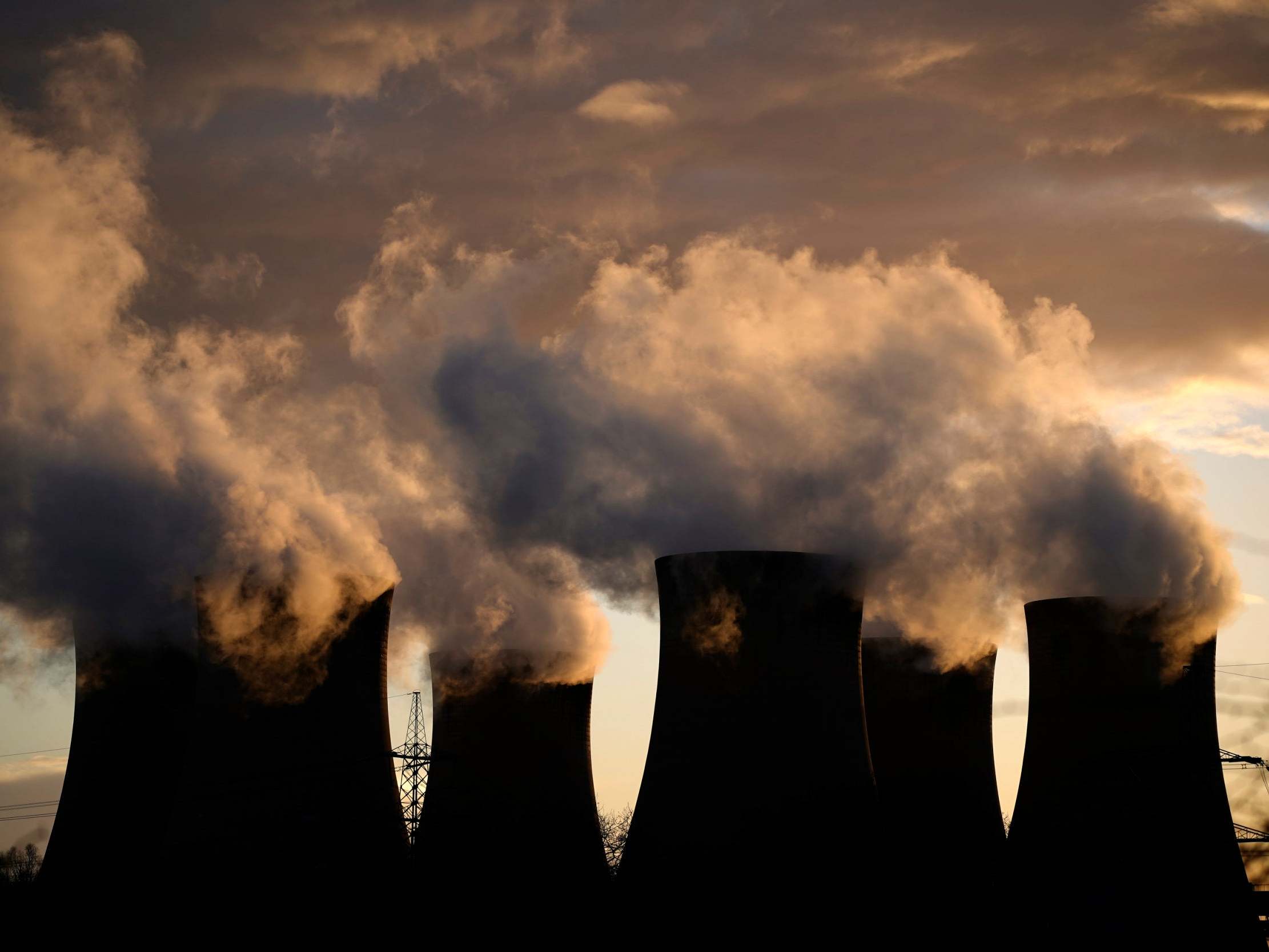Carbon emissions fall at fastest rate in 30 years as electricity sector moves away from coal
Governments must still ‘dramatically accelerate’ transition to renewable energy to keep global warning at 1.5C, analysts warn

Carbon emissions generated by the electricity sector fell at the fastest rate in at least 30 years as countries turned their backs on coal, analysis suggests.
Coal-fuelled electricity declined 3 per cent in 2019, leading to a 2 per cent fall in the power sector’s carbon dioxide emissions, according to a worldwide assessment by climate think tank Ember.
But the report’s authors said a shift away from fossil fuels was not yet “the new normal” and warned governments must “dramatically accelerate” the transition to sustainable energy sources if the world is to avoid the worst impacts of global warming.
Last year’s fall in coal-fired power was the largest since 1990, when the International Agency began reported figures, and was driven in part by a switch to renewables in Europe and more competitive gas pricing in the US. Coal generated 24 per cent less electricity in Europe and 16 per cent less in the US in 2019.
Nuclear plant restarts in Japan and South Korea also slowed demand for coal, according to Ember. But China bucked the trend by increasing its coal usage by 2 per cent to become responsible for half of worldwide coal-fired power.
Dave Jones, Ember’s electricity analyst and lead author of the report, said: “The global decline of coal and power sector emissions is good news for the climate but governments have to dramatically accelerate the electricity transition so that global coal generation collapses throughout the 2020s.”
Coal-fired power generation needs to plummet by 11 per cent a year for the next decade if global warming is to be limited to 1.5C above pre-industrial levels, the limit scientists warn is needed to avoid to worse impacts of the climate crisis.
Ember said limiting the rise to 1.5C was “looking extremely difficult,” adding: “Progress is being made on reducing coal generation, but with nothing like the urgency needed to meet global climate goals, especially in Asia.”
The report warned the US coal collapse was “undermined” by a move towards gas, which rose 4 per cent worldwide.
“To switch from coal into gas is just swapping one fossil fuel for another,” said Mr Jones.
“The cheapest and quickest way to end coal generation is through a rapid roll-out of wind and solar.”
In the EU, where coal generation fell by 24 per cent, there was a shift from coal straight to wind and solar power.
Wind and solar generation rose by 15 per cent worldwide in 2019, generating 8 per cent of the world’s electricity.
The same level of growth in renewables is needed every year to meet the Paris climate agreement, added Ember’s report. It said lower prices “provide hope” that rate can be sustained” but continued growth “will require a concerted effort from all regions”.
Mr Jones said: “China’s growth in coal, and to some extent gas, is alarming but the answers are all there.
“The EU leaps out with 18 per cent of electricity now coming from wind and solar, but with the US on 11 per cent, China at 9 per cent and India at 8 per cent the race is on.”
The report also revealed demand for electricity slowed to 1.4 per cent last year, the slowest increase since the 2009 recession, due to low economic growth and a milder winter in the US and EU.
The analysis incorporates data on 85 per cent of the world’s electricity generation, including from China, the US, India and EU, and informed estimates of the remaining 15 per cent.
Electricity generated by renewables overtook fossil fuels for the first time in the third quarter of last year, according to analysis by Carbon Brief.
Join our commenting forum
Join thought-provoking conversations, follow other Independent readers and see their replies
Comments
Bookmark popover
Removed from bookmarks